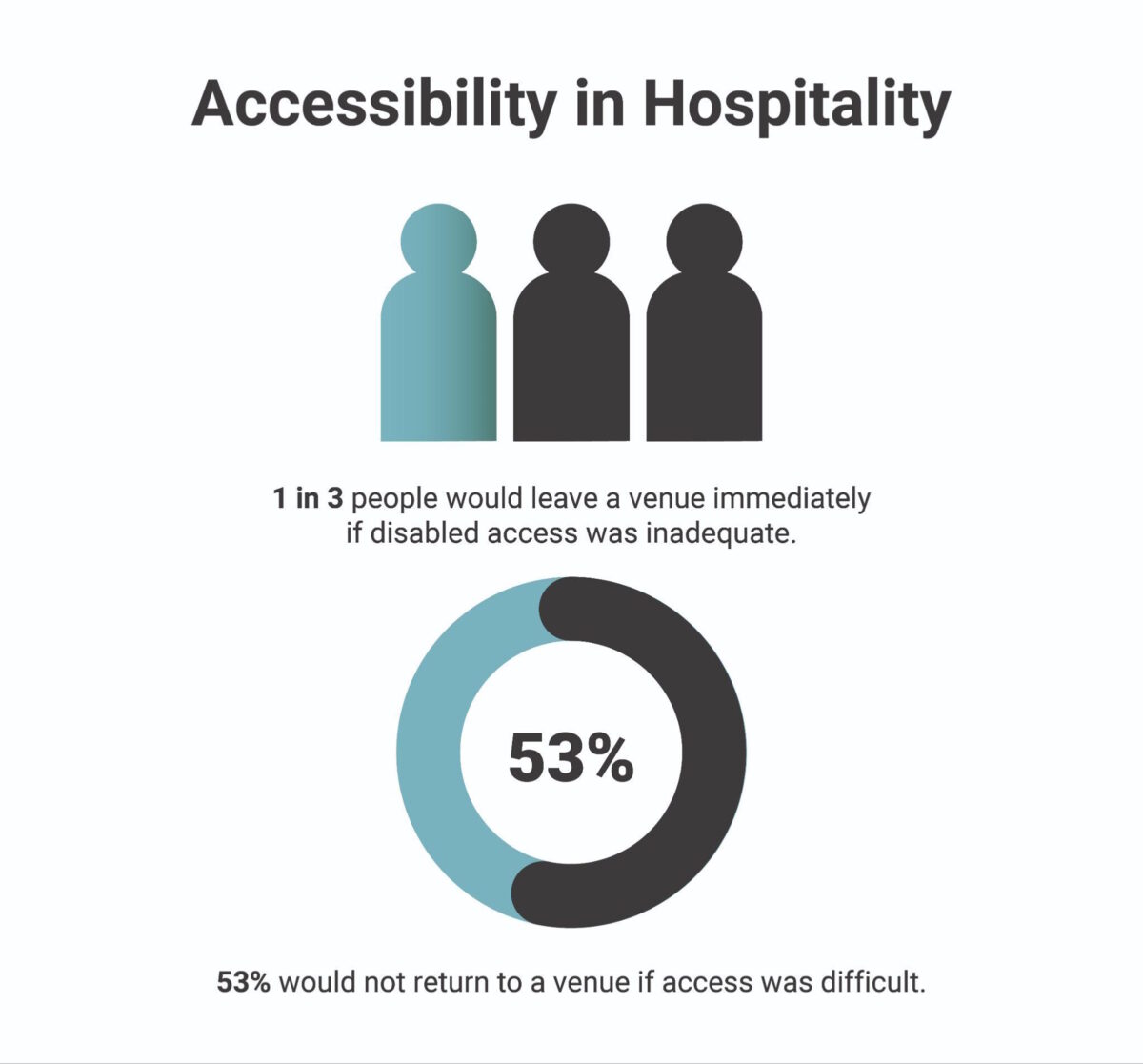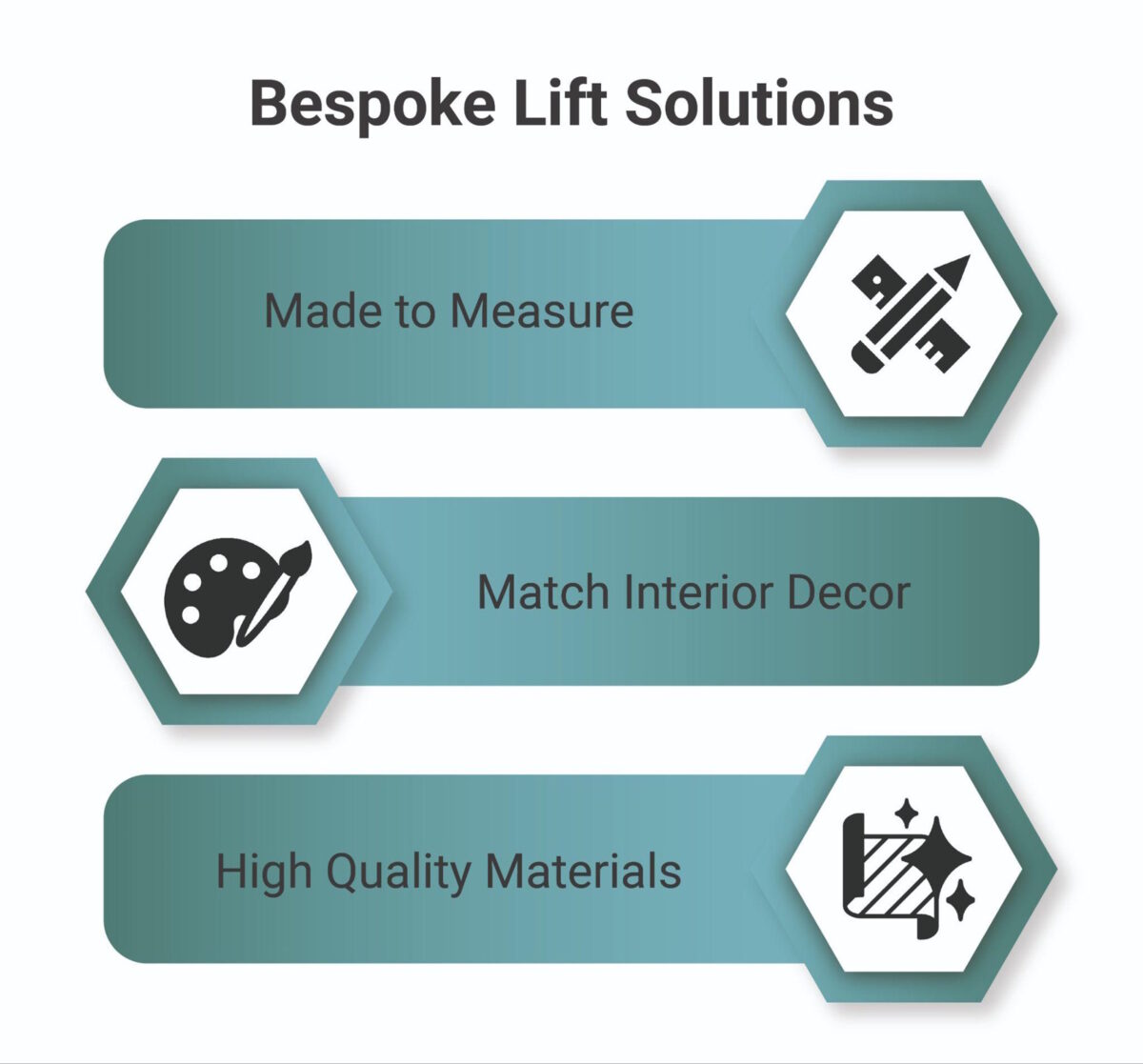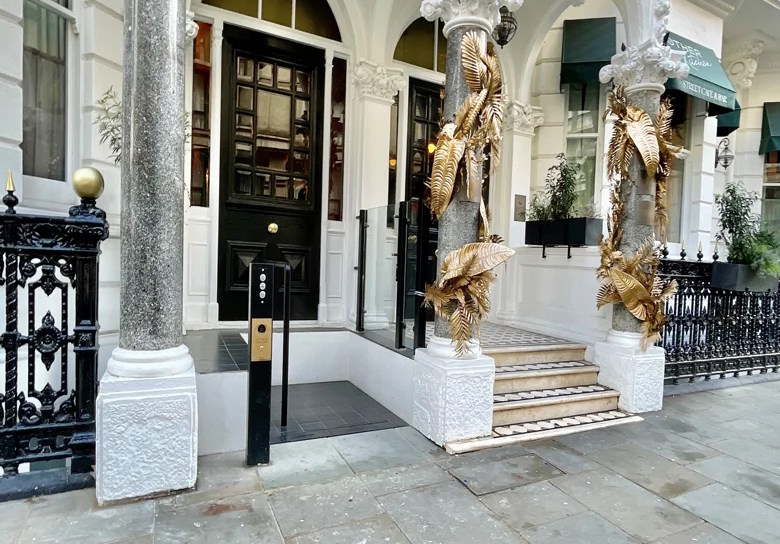The number of disabled people in the UK is growing and accounts for a large proportion of UK citizens. The National Office for Statistics defines disability as a mental or physical condition or illness that has lasted or is expected to last 12 months or more, disrupting day-to-day activities.
According to figures from the UK Parliament, since 2002/3, the estimated number of disabled people has increased by 5.2 million, from 18% of the total UK population to 24% in 2021/22. Despite this, many services in the hospitality industry, including those provided by luxury hotels or venues, are ill-equipped to host disabled guests.
Keep reading to learn more about how investing in commercial platform lifts is essential for enabling accessibility and fostering inclusivity in luxury venues.
Why Do Luxury Venues Need Accessible Solutions?
Luxury establishments distinguish themselves from the budget or mid-range venues by providing top-notch guest experiences. If venues fail to adequately accommodate disabled people, who make up a quarter of the UK population, they cannot truly offer a positive experience for all customers.
Enhanced Accessibility
There are many accessible features that a building can integrate to make them more accessible, such as adapted rooms with accessible bathrooms that accommodate wheelchairs, grab bars, wider doorways and commercial platform lifts.
Having accessible features like commercial platform lifts enables people with mobility issues to enjoy the same level of comfort as able-bodied individuals. Using staircases isn’t feasible for everyone, stairs aren’t compatible with wheelchairs and can be difficult for people with reduced mobility to climb. Commercial platform lifts can be installed in buildings with multiple floors or different level surfaces to enable customers to get around with ease.
Improved Guest Experience
Implementing accessible measures will significantly improve the guest experience for disabled individuals. Customers who are given adapted, spacious rooms and can move around the hotel or venue easily are likely to be pleased with their stay. Since not all establishments offer an adequately comfortable experience, satisfied customers often return to hotels or venues they can rely on.
Brand Reputation
In the past, little consideration was given to making spaces accessible, but today, a certain level of accessibility is expected. Particularly amongst the younger generations, who expect accessibility accommodations to make sure lesser-abled people are catered for.
As a business, demonstrating that your company values disabled clientele is paramount, and making adaptations that fit their needs presents your organisation in a good light. Failure to do so could discourage potential disabled customers, as well as able-bodied customers, who feel strongly about inclusion.
The ‘Accessibility in Hospitality’ report surveyed 250 non-disabled and disabled guests aged 18 to 66+ from the Hospitality Guest Experience Management (HGEM) database to determine whether current accessibility measures in the hospitality industry are sufficient.

Competitive Advantage
Since able-bodied people are typically considered the target audience, accommodating disabled people is often an afterthought. This leaves a gap in the market for truly inclusive facilities that offer an equally positive experience for able-bodied or disabled customers alike.
Taking inclusivity into account and making accessibility changes can allow for a broader clientele. By widening your services to be appropriate for individuals with more complex requirements, you gain a wider client base and encourage more diverse customers.
Legal and Ethical Requirements
In the UK, the Equality Act 2010 requires all public venues, including hotels to make reasonable adjustments to accommodate disabled individuals. This includes providing accessible entrances, facilities, and services. The law demands proactive measures to prevent discrimination and ensure equal access. Failure to comply can result in legal action or fines.
Aside from legal requirements, fostering inclusivity and accessibility should be an ethical consideration. Luxury venues should strive to create an environment that offers equal treatment and care for all customers, regardless of disability. Lack of accessibility considerations can damage a brand’s reputation, leading to customer loss.
How Can Platform Lifts Meet Luxury Standards?
When seeking accessibility solutions in your luxury venue, you’ll likely want options that fit the style and calibre of your facility. Here are some things you can consider when making adaptations to your venue.
Design and Aesthetics
When considering how to incorporate accessible features like platform lifts, consider whether you want lifts to fit in with the interior design and architecture of your building or stand out.
Hidden platform lifts offer highly discreet accessibility options. The lift mechanism retracts under the floor with a finish that blends in with the flooring, making them almost undetectable when not in use. This option is especially popular with museums and heritage buildings to not distract from the architecture.
Choosing a disabled lift that matches the colour scheme or tones used in the venue can help the lift seamlessly blend in with the rest of the decor.
Alternatively, using bold colours can draw attention to the lift, having it as a focal point and making the lift easy to find. Whichever you prefer, commercial platform lifts can uphold the aesthetically pleasing appearance of your venue.
Branding and Customisation
There are many options to customise accessibility platform lifts to suit your luxury venue’s style. For example, your company’s branding can be incorporated into the design. Unique finishes or custom branding can add a personalised touch to the lift in keeping with the calibre of your luxury venue.
Materials
High-quality materials like premium glass, stainless steel, bronze, brass, copper, timber, stone and more can be used to create a lift that is durable and visually appealing. Alternatively, if being eco-friendly is important to your brand, sustainably sourced materials can be selected to impress your clients whilst maintaining your business’s luxury standards.
Technology Integration
Investing in a high-tech lift with many smart features makes it easy and convenient to use. Cutting-edge lift technology has evolved to create lifts that run smoothly, quickly and quietly to maintain a peaceful environment and prevent any disruption to customers.
Bespoke Solutions
If you’re looking for a custom-made lift solution for your space, bespoke platform lifts may be the answer. Precise measurements can be taken to design and manufacture a disabled lift that perfectly fits the shape and size of your space.
Work With Lyfthaus
At Lyfthaus, we’re accessible lift experts. All our disability lifts are compliant under the Equality Act 2010. Our mission is to provide accessible lift solutions to UK businesses to help you meet your accessibility goals and make your services available to everyone.
We offer a range of disabled lift options like platform lifts and hidden platform lifts to suit the needs and preferences of your business. If you’re looking for a more creative lift that blends beautifully with your environment, our architects and builders can create a bespoke platform lift that ensures a flawless finish.

For more information about our accessibility platform lifts, call us at 01440 731111 or get in touch online.

